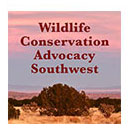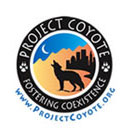In Memory of Roxy
The bill is named in memory of Roxy, a sweet senior cattle dog who was strangled to death by a neck snare set by a trapper while hiking with her human on public land.
As if Roxy’s death was not tragic enough, what came after was abysmal. As Roxy’s owner carried her lifeless body back to his car, an emaciated bobcat caught in a leghold trap lunged at him from behind a tree. The New Mexico Department of Game & Fish (NMDGF) arrived at the scene and euthanized the bobcat, and their investigators located the trapper who set the trap and snare, but a judge ruled that NMDGF had illegally seized evidence and dismissed the charges against the trapper.
Photo of Roxy by Kathrina Clark
About the Bill
The Problem
Traps, snares, and poisons:
- Undermine other safe uses of public lands
- Threaten our outdoor recreation and tourism economy
- Violate the North American model of wildlife conservation
- Injure & kill endangered species
- Harm non-target wild & domestic animals, including family dogs and cats
- Subject animals to unnecessary cruelty
The Solution
A majority of New Mexicans agree that it is time for New Mexico to join our neighboring states of Colorado and Arizona and restrict traps, snares, and poisons on the public lands we share. Let’s not wait for more or bigger tragedies to happen before taking action.
Senate Bill 32: The Wildlife Conservation and Public Safety Act (a.k.a. Roxy’s Law) would:
- Outlaw all leg-hold, body-gripping, & cage traps, all snares, and wildlife poisons on New Mexico public lands
- Allow for common-sense exceptions, like protecting human health, scientific research, and Indigenous religious practice
- Establish misdemeanor penalties for violations
- Go into effect on April 1, 2022
To learn more, read the fact sheet.
Who Supports Senate Bill 32?
“The recent trapping accidents in New Mexico are tragic and avoidable. As a State Representative, I supported and co-sponsored various legislation to end trapping on public land, and I’ll continue to support and advocate for Roxy’s Law as your Commissioner in the upcoming session. It is time for the legislature to ban trapping on public lands in New Mexico in a way that makes sure that sovereign Nations, Tribes, and Pueblos have their own oversight.”
—Stephanie Garcia Richard, New Mexico State Land Commissioner
“It’s past time this madness ended. Public lands should be safe, wildlife should be respected, people should not be afraid to take their dogs or children on a hike. The solution is simple—the legislature needs to act.”
“Traps are like landmines, catching and harming any creature unlucky enough to step on them. It’s time to get them off our public lands.”
“As a wildlife biologist, I can say definitely that trapping is not a legitimate form of wildlife management. Our public lands and the wildlife that live on them must be protected from such cruel and wanton waste of wildlife.”
“No one who visits our public lands should be subjected to finding suffering wildlife in traps or the trauma of their own beloved dog being harmed.”
“One of the federally listed endangered species that we work to protect is the Mexican gray wolf. With only 87 wolves in the wild in New Mexico, it’s one of the most imperiled wolves in the country, and they’re facing many challenges. Traps are just another obstacle for successful recovery efforts.”
“I once had a beautiful black & white two year old Husky…She got caught for many days in a deadly, hidden trap. My family and I found her after endless searching, more dead than alive, and I can only imagine the suffering she endured. This is why I support Roxy’s Law.”
“The state of New Mexico needs to fully commit itself to implementing a science-driven, 21st century wildlife stewardship model for all non-game species. The day of recreational trapping in my mind should come to an end in New Mexico. ”
“New Mexico Wild Action Fund believes that wildlife is held in public trust for the protection and continued enjoyment of all New Mexicans, and should not be commercialized. We applaud Senators Gonzales and McKenna and Representatives McQueen and Chandler for their efforts to end the practice of trapping on our public lands.”
“New Mexicans overwhelmingly agree that it is past time for New Mexico to join our neighboring states of Colorado and Arizona and say goodbye to traps, snares, and poisons on the public lands we share. Let’s not wait for more or bigger tragedies to happen before taking action.”
“Mexican gray wolves are the most endangered subspecies of gray wolf in the world. Despite steady population growth over the past 20 years, trapping continues to hinder our ability to recover this important species. The time has come to get traps off our public lands.”
“Trapping on public lands is indiscriminate and an ineffective tool for wildlife management, killing thousands of unintended animals instead of targeted predators; it’s primary motive is private profit from a public trust resource. By ending trapping on our public lands, we will make them safer for NM residents and NM wildlife – creating more equitable access to nature while benefiting our local outdoor economy.”
“Today’s vote gives us hope that very soon, rare and beautiful animals will no longer fall victim to cruel and indiscriminate leghold traps and strangulation snares. These killing devices should never have been allowed on public lands.”
Editorial
Nothing About Traps is New Mexico True
New Mexicans have worked hard over the years to do right by the animals in our state. We have banned cockfighting, horse tripping and coyote-killing contests. We have made dog fighting a fourth-degree felony. We have created a dedicated funding stream for low-cost spay and neuter services.
And now it is time we finally stop allowing the brutal, indiscriminate use of traps on our public lands.
For a paltry $20 permit, members of a small and vocal minority are allowed to litter our amazing public lands with as many leg-hold, body-gripping and cage traps, snares and poisons as they want. There is no limit to the number of animals they can maim and kill. No requirement they take only a certain species or gender or quickly put a suffering animal out of its misery. They can leave their traps unchecked for up to two days as anything suffers in them.
And since Nov. 1, three pet dogs have been caught in these traps (including Jesse, a 2-year-old Dutch shepherd who suffered minimal injuries from a trap in the Jemez National Recreation Area on Thanksgiving, and Mahlia, a black lab who lost many of her toes in a trap in northern Santa Fe County). Meanwhile, a hiker in Doña Ana County found a gruesome pile of more than a dozen skinned coyote carcasses, many with obvious trapping wounds on their legs. A map from Trap Free New Mexico shows incidents of traps catching people, pets and the wrong kind of animal stretch across our national forest, BLM and state trust lands.
Put that on a tourism ad.
Read more (subscription required)
















